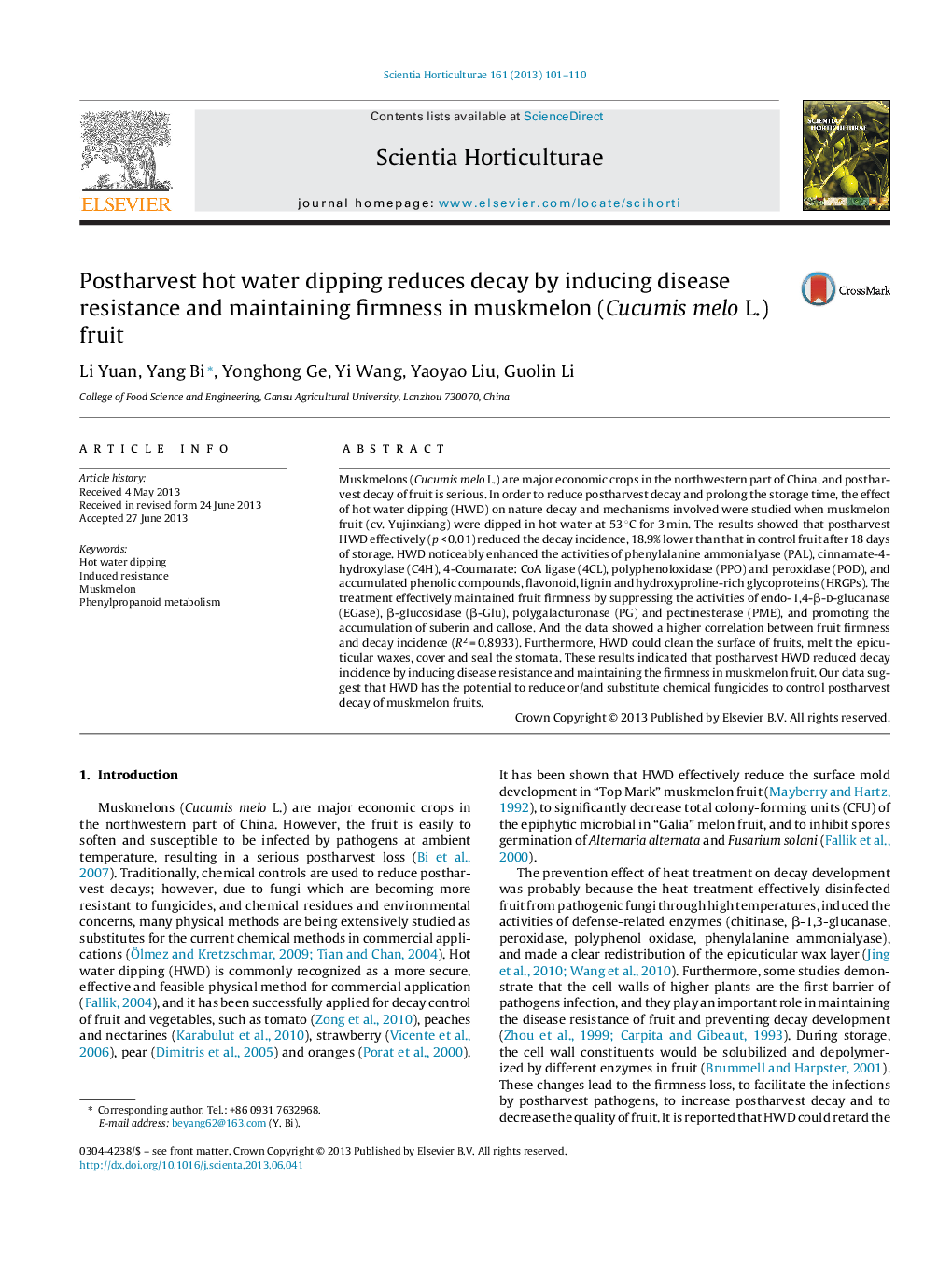| کد مقاله | کد نشریه | سال انتشار | مقاله انگلیسی | نسخه تمام متن |
|---|---|---|---|---|
| 4567146 | 1628837 | 2013 | 10 صفحه PDF | دانلود رایگان |

• HWD reduced the natural incidence in muskmelons fruit.
• HWD enhanced the activity of defense enzymes and content of antifungal compounds.
• HWD maintained fruit firmness.
• HWD reduced the cells interval, strengthen the tissues of fruit cortexes.
• HWD cleaned the fruits surface, covered and sealed the stomata.
Muskmelons (Cucumis melo L.) are major economic crops in the northwestern part of China, and postharvest decay of fruit is serious. In order to reduce postharvest decay and prolong the storage time, the effect of hot water dipping (HWD) on nature decay and mechanisms involved were studied when muskmelon fruit (cv. Yujinxiang) were dipped in hot water at 53 °C for 3 min. The results showed that postharvest HWD effectively (p < 0.01) reduced the decay incidence, 18.9% lower than that in control fruit after 18 days of storage. HWD noticeably enhanced the activities of phenylalanine ammonialyase (PAL), cinnamate-4-hydroxylase (C4H), 4-Coumarate: CoA ligase (4CL), polyphenoloxidase (PPO) and peroxidase (POD), and accumulated phenolic compounds, flavonoid, lignin and hydroxyproline-rich glycoproteins (HRGPs). The treatment effectively maintained fruit firmness by suppressing the activities of endo-1,4-β-d-glucanase (EGase), β-glucosidase (β-Glu), polygalacturonase (PG) and pectinesterase (PME), and promoting the accumulation of suberin and callose. And the data showed a higher correlation between fruit firmness and decay incidence (R2 = 0.8933). Furthermore, HWD could clean the surface of fruits, melt the epicuticular waxes, cover and seal the stomata. These results indicated that postharvest HWD reduced decay incidence by inducing disease resistance and maintaining the firmness in muskmelon fruit. Our data suggest that HWD has the potential to reduce or/and substitute chemical fungicides to control postharvest decay of muskmelon fruits.
Figure optionsDownload as PowerPoint slide
Journal: Scientia Horticulturae - Volume 161, 24 September 2013, Pages 101–110